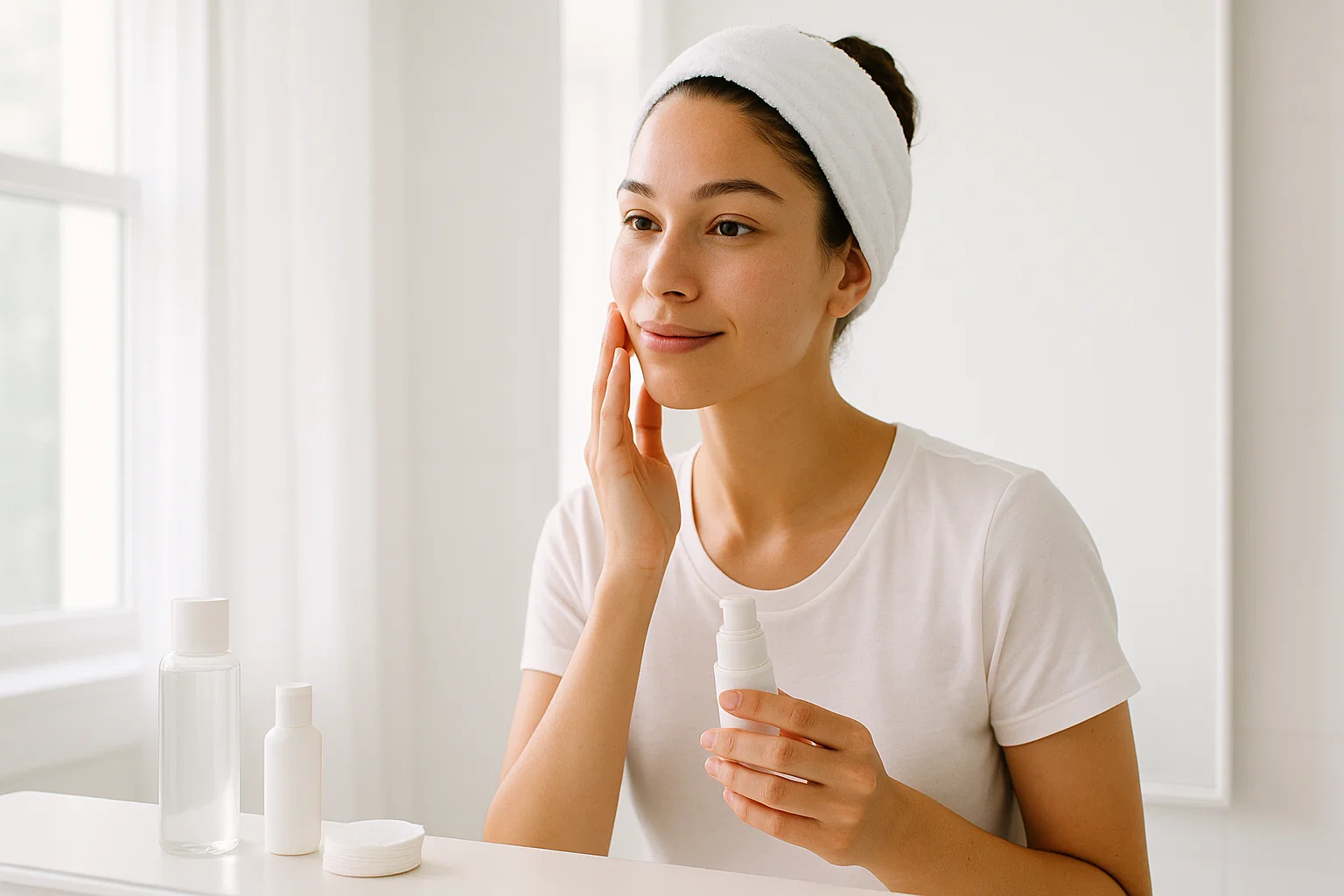Healthy, glowing skin isn’t just about using expensive products — it’s about consistency and understanding what your skin really needs. Dermatologists emphasize that a daily skincare routine should be simple, balanced, and customized to your skin type. At Dermacian, expert dermatologists in Jaipur design science-backed skincare regimens to help individuals achieve healthy, radiant skin while preventing future issues like acne, pigmentation, and premature aging.

Why a Daily Skincare Routine Matters
Your skin is the body’s largest organ and serves as a protective barrier against environmental aggressors, pollution, and UV rays. Without proper care, it can become dull, dehydrated, and prone to breakouts or fine lines.
A well-structured skincare routine:
-
Helps maintain the skin’s natural barrier
-
Controls oil and moisture balance
-
Prevents acne and inflammation
-
Slows down signs of aging
-
Enhances overall skin tone and texture
Whether you’re a beginner or already have a routine, following dermatologist-approved steps ensures your skin stays healthy in the long run.
Step-by-Step Skincare Routine Recommended by Dermatologists
1. Start with a Gentle Cleanser
Cleansing is the foundation of every skincare routine. It removes dirt, oil, sweat, and makeup that can clog pores and lead to acne.
-
Morning: Use a mild, pH-balanced cleanser suited for your skin type.
-
Evening: Double-cleanse if you wear makeup or sunscreen. First, remove makeup with micellar water or an oil-based cleanser, then wash with a gentle foaming cleanser.
Dermatologist Tip: Avoid harsh soaps — they strip natural oils and disrupt the skin barrier, leading to irritation or dryness.
2. Use a Toner to Rebalance
Toners are often overlooked but are essential for preparing the skin to absorb other products effectively.
-
Choose alcohol-free toners with soothing ingredients like rose water, niacinamide, or witch hazel.
-
Apply with a cotton pad or tap gently into the skin with your hands.
Pro Tip: For oily or acne-prone skin, a toner containing salicylic acid can help control excess oil and minimize breakouts.
3. Apply a Dermatologist-Recommended Serum
Serums deliver concentrated active ingredients deep into the skin.
-
Vitamin C serums brighten skin and fight free radicals.
-
Hyaluronic acid serums hydrate and plump the skin.
-
Niacinamide helps control oil production and reduces redness.
Apply serum right after toner while the skin is still slightly damp — this enhances absorption.
4. Moisturize — Even If You Have Oily Skin
A common skincare mistake is skipping moisturizer. Every skin type needs hydration to maintain elasticity and barrier function.
-
For dry skin, use a rich cream with ceramides or glycerin.
-
For oily skin, opt for a lightweight, oil-free gel-based moisturizer.
-
For sensitive skin, choose fragrance-free, hypoallergenic formulas.
Expert Insight: Dehydrated skin produces more oil to compensate — leading to breakouts. Regular moisturizing helps balance it out.
5. Never Skip Sunscreen
Sunscreen is non-negotiable — it protects against UV damage, pigmentation, and early signs of aging.
Dermatologists recommend:
-
SPF 30 or higher for daily use.
-
Broad-spectrum protection (against both UVA and UVB).
-
Reapplication every 3–4 hours when outdoors.
Pro Tip: Even if you work indoors, UV rays can penetrate windows, so sunscreen is still essential.
Weekly Add-Ons for Healthier Skin
1. Exfoliation (1–2 Times a Week)
Exfoliating removes dead skin cells, unclogs pores, and boosts cell renewal.
Use mild chemical exfoliants (AHAs like glycolic acid or BHAs like salicylic acid) instead of harsh scrubs. Over-exfoliating can cause irritation or sensitivity.
2. Hydrating or Detox Masks
Face masks can offer a quick boost to your skincare.
-
Clay masks for oily and acne-prone skin
-
Sheet masks for dry, dull skin
-
Enzyme masks for gentle resurfacing
Try a HydraFacial treatment occasionally to deeply cleanse, exfoliate, and hydrate the skin — a dermatologist-approved way to enhance your at-home routine.
How to Choose the Right Products for Your Skin Type
1. Oily Skin
-
Use foaming cleansers and oil-free moisturizers.
-
Avoid heavy creams and stick to non-comedogenic formulas.
2. Dry Skin
-
Choose creamy cleansers and hydrating serums with hyaluronic acid.
-
Apply moisturizer immediately after cleansing to lock in moisture.
3. Combination Skin
-
Balance the routine by using lightweight products on the T-zone and richer creams on dry areas.
4. Sensitive Skin
-
Avoid fragrances, alcohol, and sulfates.
-
Look for calming ingredients like aloe vera and chamomile.
5. Acne-Prone Skin
-
Include niacinamide, salicylic acid, or retinoids under dermatologist guidance.
-
Avoid comedogenic oils and thick textures.
(Explore acne-focused treatments and medical solutions at Dermacian’s Acne Care Section.)
Common Skincare Mistakes to Avoid
-
Using too many products at once – This can overwhelm your skin and cause irritation.
-
Sleeping with makeup on – Clogs pores and accelerates aging.
-
Ignoring the neck and hands – These areas also show signs of aging early.
-
Skipping moisturizer or sunscreen – Two essentials for every routine.
-
Trying every trending product – Not every skincare trend suits your skin type.
Dermatologist Advice for Healthy Skin
-
Keep it simple: Stick to the basics — cleanse, treat, moisturize, protect.
-
Be consistent: Skin needs time to adjust. Give each product at least 3–4 weeks.
-
Get professional advice: A dermatologist can identify hidden causes like hormonal changes or allergies.
-
Prioritize sleep and nutrition: Internal health reflects on your skin’s glow.
Conclusion: Skincare Is an Investment, Not a Luxury
Building a dermatologist-approved skincare routine is an investment in your long-term skin health. It’s not about using ten products but using the right ones consistently. Understanding your skin type, choosing gentle yet effective ingredients, and protecting your skin daily will make a noticeable difference over time.
To explore advanced, medically-approved skincare treatments and personalized consultations, visit Dermacian’s official website — where science meets skin confidence.